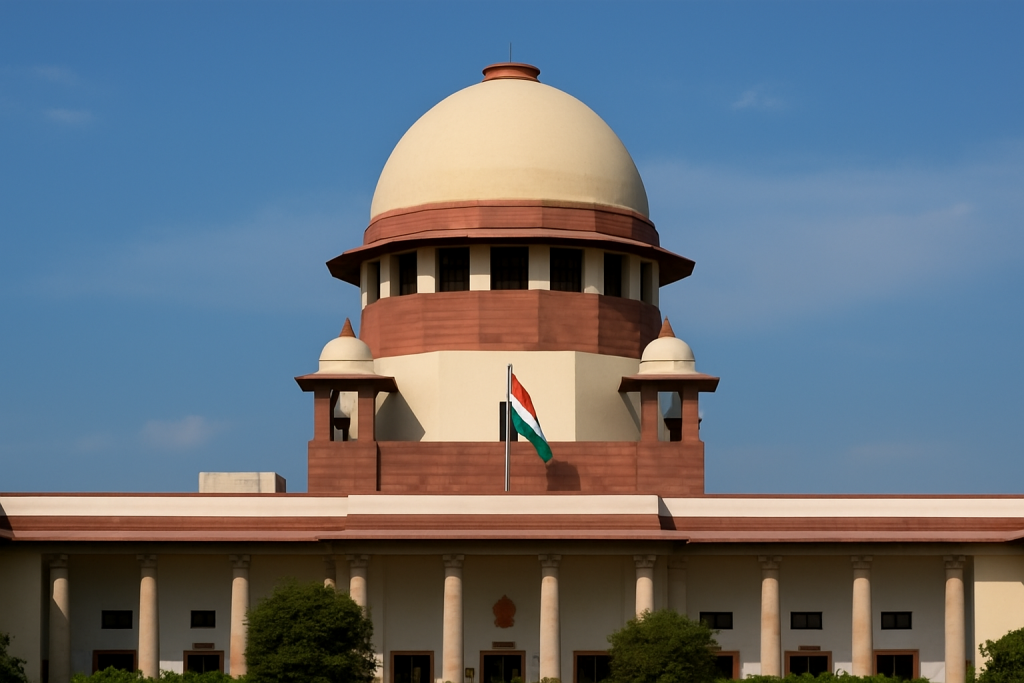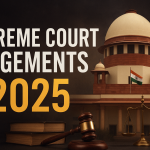Case Title: Vikram Bhalchandra Ghongade v. State of Maharashtra & Ors.2025
Hon’ble Judges: Justice P.S. Narasimha and Justice A.S. Chandurkar
In a recent landmark ruling, the Supreme Court of India has reinforced a significant principle: when a decree is null and void from the outset, its invalidity can be challenged at any stage, including during execution proceedings. The judgment emphasizes that if a decree is void ab initio—meaning it has no legal effect from the very beginning—its invalidity cannot be remedied by the passage of time or by procedural formalities.
The case before the Court involved a dispute over agricultural land that had been allotted to an ex-serviceman, Arjunrao Thakre. After his death, the land was reallocated to others, leading his legal heirs to file a civil suit in 2006. The trial court ruled in their favor; however, during the first appeal, one of the key appellants passed away. No steps were taken to substitute the deceased party’s legal heirs. Despite this, the first appellate court issued its judgment in 2010, modifying the trial court’s decree. When the decree-holders sought to execute the original decree, both the executing court and the High Court determined that the trial decree had merged with the appellate decree and, therefore, could not be enforced.
On appeal, the Supreme Court took a different stance. It ruled that since the appellate decree was issued in favor of a deceased person without proper substitution, it constituted a nullity—void and unenforceable in law. The Court clarified that when an appellate decree is itself a nullity, the doctrine of merger does not apply, meaning the original decree remains valid. Consequently, the trial court’s decree was revived and could be executed.
The Bench noted, “If a decree is a nullity, its invalidity can be raised whenever and wherever it is sought to be enforced, even at the stage of execution.” This statement reaffirms the established position that courts, even during execution, are not required to automatically enforce every decree presented to them; they must ensure that the decree is legally valid and enforceable.
This ruling has significant implications for civil procedure and execution law. It ensures that no party can exploit procedural irregularities or defective proceedings to uphold a void decree. It also emphasizes the responsibility of courts to prevent the enforcement of decrees that lack legal validity. By establishing that the issue of nullity can be raised at any time, the Supreme Court has reinforced the procedural safeguards available to litigants and highlighted the importance of legal validity over mere formality.
The decision in Vikram Bhalchandra Ghongade v. State of Maharashtra & Others serves as a critical precedent for future disputes involving invalid decrees, lapses in substitution, and execution proceedings. It serves as a reminder to practitioners and litigants alike that, in the eyes of the law, a void act remains void forever and cannot become valid simply through delay or inaction.



